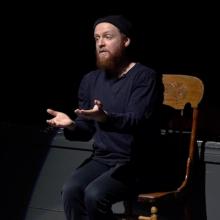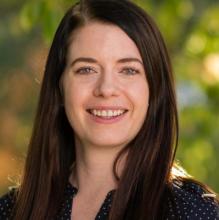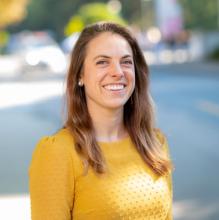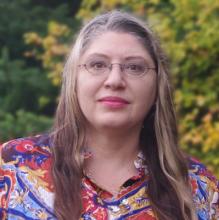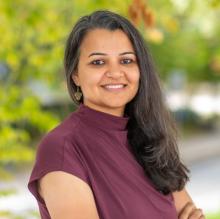Being a Public Scholar means extending the boundaries of my scholarly work beyond academia and practically connecting it with my community practice. As an artistic director, applied theatre artist and PhD candidate, I straddle these worlds. Being part of the Public Scholars Initiative (PSI) is an attempt to tear apart the distinction altogether, integrating academic inquiry with real-world applications
Research Description
The project REMNANTS (1991), originally developed by Hank Greenspan, is a research-based play drawn from conversations with Jewish Holocaust survivors. The play delves into their ongoing post-war experiences, exploring themes such as loneliness, rage, storytelling and the dynamics of relationships across generations. For the next phase of my doctoral research, I will collaborate with Greenspan and six Jewish actors, each of whom will immerse themselves in five-minute monologues; we will explore themes like loneliness, rage and storytelling. These performances will lead to discussions, informed by feedback from the advisory team, shaping the refinement of the production. The project will culminate in an interactive, showcase performance with the Jewish community in Vancouver, with comprehensive documentation of the process, including video, photographs and journals.
What does being a Public Scholar mean to you?
Being a Public Scholar means extending the boundaries of my scholarly work beyond academia and practically connecting it with my community practice. As an artistic director, applied theatre artist and PhD candidate, I straddle these worlds. Being part of the Public Scholars Initiative (PSI) is an attempt to tear apart the distinction altogether, integrating academic inquiry with real-world applications
In what ways do you think the PhD experience can be re-imagined with the Public Scholars Initiative?
With the Public Scholars Initiative, I can take my project directly into the Jewish community I am working with, viewing them as co-inquirers rather than passive recipients of knowledge. This re-imagines the PhD experience as a collaborative, community-engaged process where academic research directly informs and is informed by community needs and insights.
How do you envision connecting your PhD work with broader career possibilities?
I envision my PhD work bridging Jewish education, activism and applied theatre. Jobs in this niche intersection don't necessarily exist; I am prepared to forge them. The flexibility and support of the PSI allow for this pioneering approach, facilitating a career path that is innovative and necessary.
How does your research engage with the larger community and social partners?
My research engages with Jewish institutions, educators and artists who are integral partners in my project. They serve as advisors, participants and audience members, providing constant input and feedback that are crucial to my inquiry. This collaborative approach ensures that my work remains relevant and grounded in the community’s needs.
Why did you decide to pursue a graduate degree?
I decided to pursue a graduate degree to make an impact through thoughtful engagement with theory and practice. My goal is to integrate academic rigor with real-world application, using my background in theatre and community activism to address complex social issues meaningfully.
Why did you choose to come to British Columbia and study at UBC?
I chose to continue my studies at UBC due to my positive experiences during my B.Ed and Master's programs. The close relationships I formed with my supervisor and the relevant work being done here were significant motivators. My journey at UBC has shown me that effective public scholarship is fundamentally about nurturing impactful relationships.

